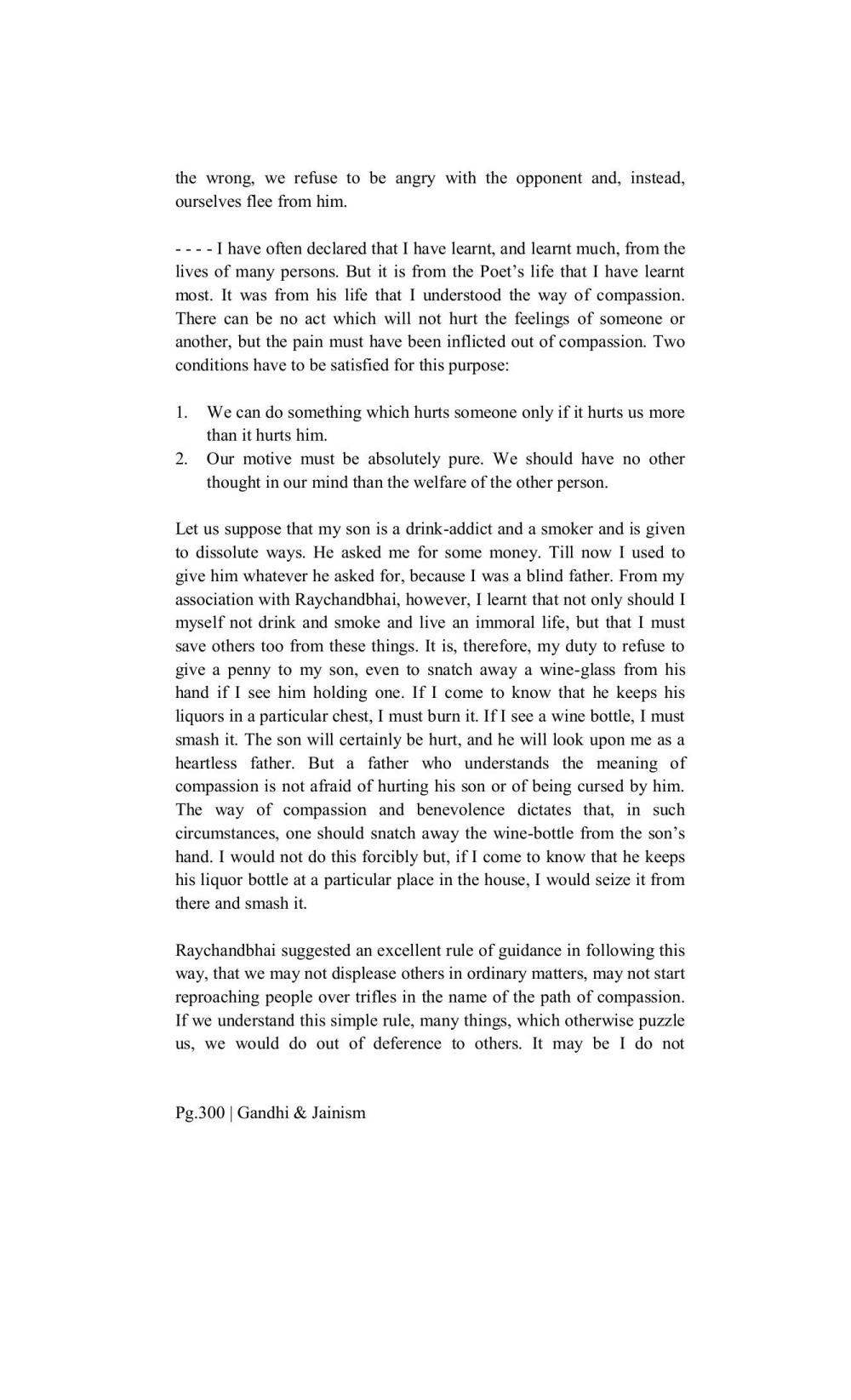________________
the wrong, we refuse to be angry with the opponent and, instead, ourselves flee from him.
---- I have often declared that I have learnt, and learnt much, from the lives of many persons. But it is from the Poet's life that I have learnt most. It was from his life that I understood the way of compassion. There can be no act which will not hurt the feelings of someone or another, but the pain must have been inflicted out of compassion. Two conditions have to be satisfied for this purpose:
1. We can do something which hurts someone only if it hurts us more
than it hurts him. 2. Our motive must be absolutely pure. We should have no other
thought in our mind than the welfare of the other person.
Let us suppose that my son is a drink-addict and a smoker and is given to dissolute ways. He asked me for some money. Till now I used to give him whatever he asked for, because I was a blind father. From my association with Raychandbhai, however, I learnt that not only should I myself not drink and smoke and live an immoral life, but that I must save others too from these things. It is, therefore, my duty to refuse to give a penny to my son, even to snatch away a wine-glass from his hand if I see him holding one. If I come to know that he keeps his liquors in a particular chest, I must burn it. If I see a wine bottle, I must smash it. The son will certainly be hurt, and he will look upon me as a heartless father. But a father who understands the meaning of compassion is not afraid of hurting his son or of being cursed by him. The way of compassion and benevolence dictates that, in such circumstances, one should snatch away the wine-bottle from the son's hand. I would not do this forcibly but, if I come to know that he keeps his liquor bottle at a particular place in the house, I would seize it from there and smash it.
Raychandbhai suggested an excellent rule of guidance in following this way, that we may not displease others in ordinary matters, may not start reproaching people over trifles in the name of the path of compassion. If we understand this simple rule, many things, which otherwise puzzle us, we would do out of deference to others. It may be I do not
Pg.300 Gandhi & Jainism




